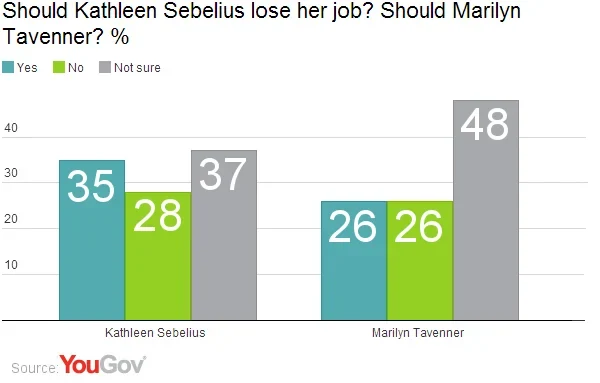Half of Americans are unfavorable of any government health insurance, but a majority still approves of Medicare.
The problem-filled debut of the federal government’s healthcare.gov website, which was intended to be an easy way to give people access to insurance options, appears to have made what had been an unpopular law, even less popular, and increased concerns about the revamped health care system. In the latest Economist/YouGov Poll, more than half describe the Affordable Care Act (Obamacare) as a failure – with more than a third calling it a “complete failure.”
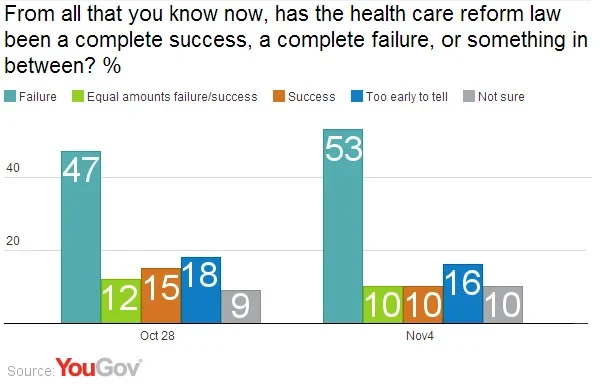
Last week, 47% called the act a failure.
Even Democrats are concerned. 27% of Democrats call Obamacare a failure, and just 20% of them say it is now a success.
The website’s problems underscore the public’s ongoing concerns about health care reform, and the government’s ability to provide health insurance effectively. Americans have worried for a long time about health care costs going up and their personal health care worsening under the new law. 44% in this week’s poll think their health care will get worse under the new system, while just 12% think it will improve. Only 8% of those currently without health insurance think their care will get better under the new program.
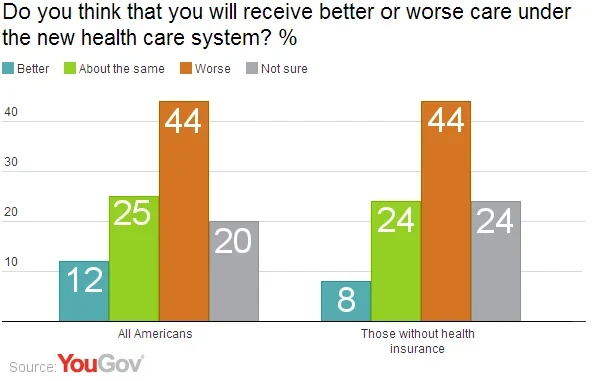
Americans don’t like the federal government in general, not just the health care law. But it is not clear that the public feels much better about the current system of private health care coverage. Americans also dislike insurance companies, giving both insurers and the government overall negative ratings. While private health insurance companies fare marginally better than the government does overall, more than twice as many Americans have unfavorable opinions than favorable ones of insurers.
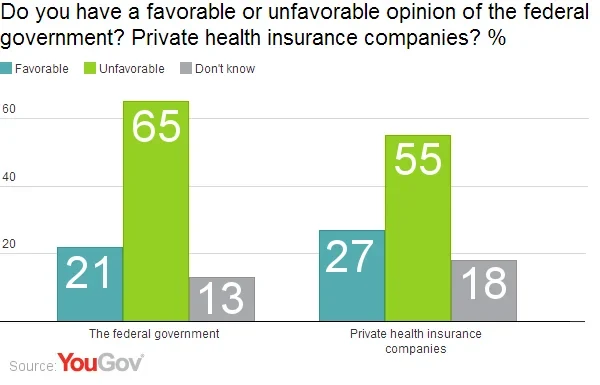
Perhaps contrary to expectations, Democrats view the federal government unfavorably (46% to 39%), and Republicans are only somewhat positive when it comes to evaluating insurance companies (49% to 40%).
Americans’ assessment of government involvement in health care coverage changes dramatically when it comes to the one existing system of government-provided insurance. Half the public holds unfavorable views of “government-provided health insurance,” a somewhat less negative evaluation than Americans give to both the federal government overall and private insurers. But when they judge one government insurance program with a nearly 50-year long history – Medicare – opinion is clearly positive.
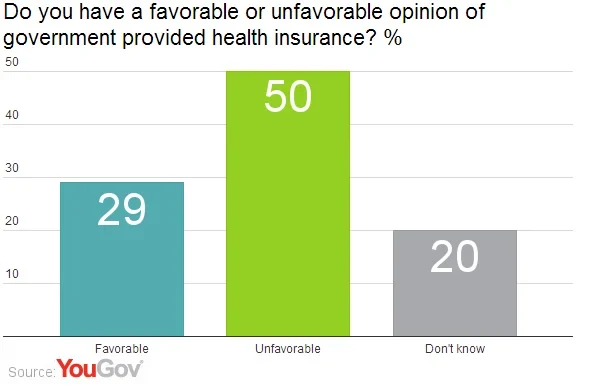
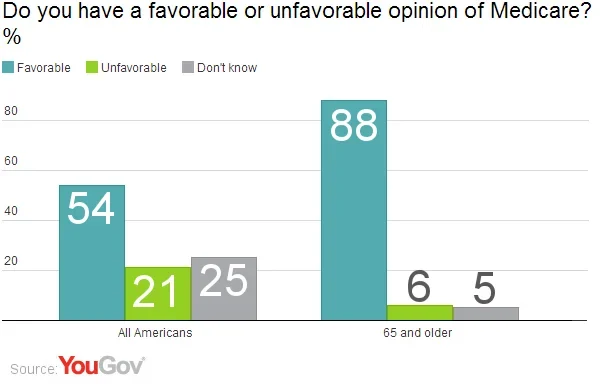
Even Republicans have favorable views of Medicare: 50% of them are favorable, while 31% are not. And in this poll those covered by the system, Americans 65 and older, clearly are happy with Medicare coverage. By 88% to 6%, senior citizens hold favorable views about the system that covers most of them.
Obamacare obviously has a long way to go to come close to those positive views of Medicare. In this week’s poll twice as many Americans continue to believe that private firms provide better coverage than think the government would. More want to buy insurance through their workplace than from either the government or private companies. And neither the government nor private enterprise has an advantage when it comes to controlling costs.
More than a third of those currently without health insurance say they have visited a health care website, but so have many currently with coverage, some of whom say they were just curious. And while there were many negative comments about usability, some visitors also reported they had no problems. That was especially true among those who visited state exchanges.
The website failures have caused some, including some Members of Congress, to want heads to roll. Some Americans agree, though not an overwhelming number. Two officials who have testified about the site’s failures to Congress recently get a split decision when Americans are asked whether they should lose their jobs because of the problems. 35% would fire Kathleen Sebelius, the Secretary of Health and Human Services; 28% would not. 26% would fire Marilyn Tavenner, Director of the Centers for Medicare and Medicaid Services, and the same percentage would not.
